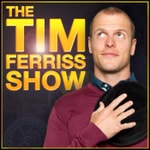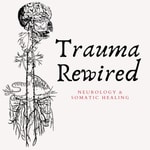PsychEd: educational psychiatry podcast – Details, episodes & analysis
Podcast details
Technical and general information from the podcast's RSS feed.

PsychEd: educational psychiatry podcast
PsychEd
Frequency: 1 episode/42d. Total Eps: 74

Recent rankings
Latest chart positions across Apple Podcasts and Spotify rankings.
Apple Podcasts
🇨🇦 Canada - mentalHealth
29/07/2025#97🇨🇦 Canada - mentalHealth
25/07/2025#65🇨🇦 Canada - mentalHealth
19/07/2025#62🇨🇦 Canada - mentalHealth
18/07/2025#97🇨🇦 Canada - medicine
15/03/2025#38🇬🇧 Great Britain - medicine
15/03/2025#51🇨🇦 Canada - medicine
14/03/2025#28🇬🇧 Great Britain - medicine
14/03/2025#49🇨🇦 Canada - medicine
13/03/2025#38🇬🇧 Great Britain - medicine
13/03/2025#95
Spotify
No recent rankings available
Shared links between episodes and podcasts
Links found in episode descriptions and other podcasts that share them.
See all- https://doi.org/10.1016/S0140-6736
167 shares
- http://psychedpodcast.org/
133 shares
- https://maps.org/
120 shares
- https://twitter.com/psychedpodcast
82 shares
RSS feed quality and score
Technical evaluation of the podcast's RSS feed quality and structure.
See allScore global : 42%
Publication history
Monthly episode publishing history over the past years.
PsychEd Episode 64: Introduction to Consultation-Liaison Psychiatry with Dr. Raed Hawa and Dr. Alan Wai
vendredi 30 août 2024 • Duration 01:15:24
Welcome to PsychEd, the psychiatry podcast for medical learners, by medical learners. This episode covers an introduction to consultation-liaison psychiatry with Dr. Raed Hawa and Dr. Alan Wai, both from the University of Toronto.
Dr. Raed Hawa is an esteemed CL psychiatrist and educator. Dr Hawa's interests are in the areas of undergraduate, postgraduate, and continuing medical education. He also practices general sleep medicine with particular clinical interest in the areas of insomnia, co-morbid psychiatric and medical illnesses, and sleep-related movement disorders. He currently serves as the President of the Canadian Academy of Consultation-Liaison Psychiatry (CACLP) and holds the position of Professor at the Faculty of Medicine, University of Toronto. Additionally, Dr. Hawa is the Deputy Psychiatrist-in-Chief at the Centre for Mental Health, University Health Network. Dr. Hawa has earned American Board Certification in Psychiatry, with subspecialty certifications in Sleep Medicine and Psychosomatic Medicine (Consultation-Liaison Psychiatry). His expertise and contributions to the field have been recognized through his designation as a Distinguished Fellow of both the American Psychiatric Association (APA) and the Canadian Psychiatric Association (CPA).
Dr. Alan Wai is a psychiatrist at the University Health Network in Toronto and an Assistant Professor in the Department of Psychiatry at the University of Toronto. He provides inpatient CL psychiatry care and mental health and psychiatric care embedded in the Immunodeficiency Clinic at Toronto General Hospital, where he sees both persons living with and at risk of HIV. He received his medical degree from the University of British Columbia and completed his psychiatric residency training at the University of Toronto.
The learning objectives for this episode are as follows:
By the end of this episode, the listener will be able to…
-
Outline the history and evolution of CL psychiatry
-
Define the role and scope of CL psychiatrists in diverse medical settings
-
Identify and assess common psychiatric disorders in CL settings
-
Provide differential diagnoses and a general approach to a CL patient through a sample case
Guests: Dr. Raed Hawa and Dr. Alan Wai
Hosts: Annie Yu (PGY3), Sena Gok (MD), and Matthew Cho (CC3)
Audio editing by: Sena Gok
Show notes by: Sena Gok
Interview content:
- Introduction - 00:13
- Learning objectives - 01:09
- First guest introduction - 01:36
- History of CL psychiatry - 03:18
- Subspecialties within CL psychiatry - 10:33
- Collaborative care of CL psychiatry - 14:00
- Preparation for CL Rotation - 20:03
- Bariatric clinic and CL psychiatry - 22:32
- Future of CL psychiatry, AFC Certification - 27:45
- Second guest introduction - 33:29
- Role and scope of CL psychiatry - 34:18
- A day in CL psychiatry - 39:32
- Cultural competence in CL psychiatry - 44:08
- Introduction to patients in CL clinics - 47:53
- Resources for CL psychiatry rotation - 50:14
- Clinical vignette - 53:08
- CL psychiatric assessment approach - 01:00:25
- Agitation management in CL psychiatry - 01:09:24
- Closing - 01:13:51
- End credits - 01:15:05
Resources:
- Massachusetts General Hospital Handbook of General Hospital Psychiatry: https://www.sciencedirect.com/book/9781437719277/massachusetts-general-hospital-handbook-of-general-hospital-psychiatry
- Academy of CL Psychiatry (ACLP) educational resources: https://www.clpsychiatry.org/educationcareers/
- AFC (Area of Focused Competence) in CL Psychiatry: https://news.royalcollege.ca/en/eligibility-and-exams/areas-of-focused-competence.html
- Canadian Academy of Consultation-Liaison Psychiatry website: https://www.clpsychiatry.ca
- Our previous CL psychiatry-related episodes:
- PsychEd Episode 22: Psycho-Oncology Assessments with Dr. Elie Isenberg-Grzeda
- PsychEd Episode 35: Pain Psychiatry with Dr. Leon Tourian
- PsychEd Episode 36: Understanding Eating Disorders with Dr. Randy Staab
- PsychEdEpisode 37: Treating Eating Disorders with Dr. Randy Staab
- PsychEd Episode 57: HIV Psychiatry with Dr. Adriana Carvalhal and Dr. Leigh van den Heuvel
References:
- Ali, S., Ernst, C., Pacheco, M., & Fricchione, G. (2006). Consultation-liaison psychiatry: How far have we come? Current Psychiatry Reports, 8(3), 215–222. https://link.springer.com/article/10.1007/s11920-006-0026-y
- Beran, C., & Sowa, N. A. (2021). Adaptation of an Academic Inpatient Consultation-Liaison Psychiatry Service During the SARS-CoV-2 Pandemic: Effects on Clinical Practice and Trainee Supervision. Journal of the Academy of Consultation-Liaison Psychiatry, 62(2), 186–192. https://pubmed.ncbi.nlm.nih.gov/33288272
- Lipowski, Z. J. (1974). Consultation-Liaison Psychiatry: An Overview. American Journal of Psychiatry, 131(6), 623–630. https://doi.org/10.1176/ajp.131.6.623
- Lipowski, Z. J. (1992). Consultation-liaison psychiatry at century’s end. Psychosomatics, 33(2), 128–133. https://doi.org/10.1016/S0033-3182(92)71988-4
- Swenson, J. R., Abbey, S., & Stewart, D. E. (1993). Consultation-liaison psychiatry as a subspecialty. A Canadian survey. General Hospital Psychiatry, 15(6), 386–391. https://doi.org/10.1016/0163-8343(93)90007-b
- Taylor, G., & Doody, K. (1979). Psychiatric Consultations in a Canadian General Hospital. The Canadian Journal of Psychiatry, 24(8), 717–723. https://doi.org/10.1177/070674377902400803
For more PsychEd, follow us on Instagram (@psyched.podcast), X (@psychedpodcast), and Facebook (PsychEd Podcast). You can provide feedback by email at psychedpodcast@gmail.com. For more information, visit our website at psychedpodcast.org.
PsychEd Episode 63: Balancing Perspectives on Safety and Involuntary Hospitalization with Jesse Mangan and Dr. Jim McQuaid
mercredi 31 juillet 2024 • Duration 01:44:35
Welcome to PsychEd, the psychiatry podcast for medical learners, by medical learners. In this episode, we discuss the practice of involuntary hospitalization (also referred to as involuntary commitment or certification) with two special guests and fellow podcast creators — Jesse Mangan and Dr. Jim McQuaid. Their podcast, Committable, focuses on the topic of involuntary commitment and features stories from people with lived experience as a window into complex conversations with attorneys, physicians, psychologists, and more. Jesse Mangan is the producer of Committable and someone who has experienced involuntary hospitalization. Dr. Jim McQuaid is an Associate Professor of Sociology at Framingham University.
The learning objectives for this episode are as follows:
By the end of this episode, the listener will be able to…
-
Appreciate the individual and societal functions of involuntary hospitalization
-
Understand the potential benefits and risks associated with involuntary hospitalization from the perspective of health care professionals as well as service users and the community at large
-
Describe actions you can take as a practitioner (who has the power to certify) that may better serve your community and those you care for
-
Identify meaningful ways to continue the conversation about these issues in medical education or training and beyond
*This episode was recorded in 2021. Through a saga involving lost and recovered audio files, we’re thrilled to finally be able to release it, and believe that the topic is just as timely and relevant as ever!
Guests: Jesse Mangan and Dr. Jim McQuaid
Hosts: Anita Corsini, Nikhita Singhal, Gray Meckling, and Alex Raben
Audio editing by: Nikhita Singhal
Show notes by: Nikhita Singhal
Interview content:
- Introduction - 00:34
- Committable podcast trailer - 01:52
- Guest introductions - 04:26
- Learning objectives - 07:22
- Defining terms and setting the context - 08:11
- Jesse’s experience - 12:03
- Exploring the functions of involuntary hospitalization - 23:06
- Power differentials and the importance of humility - 41:05
- Training considerations - 45:18
- False divide between patients and providers - 51:39
- Primary prevention and public health - 55:57
- Professional identity formation - 57:57
- Societal functions and processes - 01:05:00
- Building trust - 01:11:57
- Legal safeguards - 01:20:20
- Alternative approaches/systems - 01:30:11
- Rosenhan experiment - 01:37:12
- Final thoughts - 01:39:21
- End credits - 1:43:50
Resources:
- Committable podcast website: https://sensiblenonsense.squarespace.com
- PsychEd Episode 18: Assessing Suicide Risk with Dr. Juveria Zaheer
- On Being Sane in Insane Places
References:
- Jaeger S, Hüther F, Steinert T. Refusing medication therapy in involuntary inpatient treatment—a multiperspective qualitative study. Front Psychiatry. 2019 May 9;10:295. https://doi.org/10.3389%2Ffpsyt.2019.00295
- Johansson IM, Lundman B. Patients' experience of involuntary psychiatric care: good opportunities and great losses. J Psychiatr Ment Health Nurs. 2002 Dec;9(6):639-47. https://doi.org/10.1046/j.1365-2850.2002.00547.x
- McGuinness D, Murphy K, Bainbridge E, Brosnan L, Keys M, Felzmann H, Hallahan B, McDonald C, Higgins A. Individuals' experiences of involuntary admissions and preserving control: qualitative study. BJPsych Open. 2018 Nov 16;4(6):501-509. https://doi.org/10.1192%2Fbjo.2018.59
- Ontario Hospital Association. A Practical Guide to Mental Health and the Law, Fourth Edition. Toronto: Ontario Hospital Association; 2023. Available from: https://www.oha.com/Legislative%20and%20Legal%20Issues%20Documents1/A%20Practical%20Guide%20to%20Mental%20Health%20and%20the%20Law%2c%20Fourth%20Edition%2c%202023.pdf
- Paksarian D, Mojtabai R, Kotov R, Cullen B, Nugent KL, Bromet EJ. Perceived trauma during hospitalization and treatment participation among individuals with psychotic disorders. Psychiatr Serv. 2014 Feb 1;65(2):266-9. https://doi.org/10.1176%2Fappi.ps.201200556
- Rosenhan DL. On being sane in insane places. Science. 1973 Jan 19;179(4070):250-8. https://doi.org/10.1126/science.179.4070.250
- Sposini FM. Confinement and certificates: consensus, stigma and disability rights. CMAJ. 2020 Nov 30;192(48):E1642-E1643. https://doi.org/10.1503/cmaj.201750
For more PsychEd, follow us on Instagram (@psyched.podcast), X (@psychedpodcast), and Facebook (PsychEd Podcast). You can provide feedback by email at psychedpodcast@gmail.com. For more information, visit our website at psychedpodcast.org.
PsychEd Episode 54: Cannabis and Psychosis with Dr. Nitin Chopra
lundi 29 mai 2023 • Duration 01:08:36
Welcome to PsychEd - the psychiatry podcast for medical learners, by medical learners. This episode covers the relationship between cannabis and psychotic disorders, as well as the potential impact of cannabis legalization in Canada, with our special guest Dr. Nitin Chopra. This episode was originated by Dr. Luke Fraccaro for his Grand Rounds.
The learning objectives for this episode are as follows:
By the end of this episode, you should be able to…
-
Briefly summarize the effects of cannabis on mental health and cognition, with a focus on psychosis.
-
Appreciate the evidence for cannabis use as a potential cause of persistent psychotic disorders.
-
Discuss the possible impact that recent cannabis legislation may have had on cannabis use and psychosis in Canada.
Guest Expert Dr. Nitin Chopra is an addictions psychiatrist at the Centre for Addiction and Mental Health (CAMH) and is an Assistant Professor in the Department of Psychiatry at the University of Toronto. He has an interest in concurrent disorders and is a staff psychiatrist on the Concurrent Addictions Inpatient Treatment Service and Concurrent Outpatient Medical and Psychosocial Addiction Support Service. Through his work on the Psychiatry Addictions Capacity Building and Consultation Service (PACCS) at CAMH and the Addiction Medicine and Psychosocial Addictions ECHO program, he is evolving into a leader in capacity building and education for addictions treatment. Furthermore, Dr. Chopra also works on the Early Psychosis Unit at CAMH and has extensive clinical experience working with patients experiencing psychosis, often with comorbid cannabis and other substance use.
Grand Rounds Presenter: Dr. Luke Fraccaro (PGY3)
Produced by: Dr. Luke Fraccaro (PGY3), Dr. Alex Raben (staff psychiatrist), and Josh Benchaya (MS4)
Hosts: Dr. Luke Fraccaro (PGY3), Dr. Alex Raben (staff psychiatrist), and Josh Benchaya (MS4)
Audio Editing by: Dr. Luke Fraccaro (PGY3)
Show notes by: Dr. Luke Fraccaro (PGY3)
Conflicts of Interest: There are no known conflict of interests to report
Topics:
-
0:00 - Introduction
-
2:50 - Objectives
-
3:55 - Case example
-
7:25 - Overview of cannabis effects of mental health
-
10:45 - Differentiating clinically between cannabis-induced psychosis and a primary psychotic disorder
-
13:11 - Cannabis causing acute psychotic symptoms
-
14:15 - Back to the case
-
16:05 - Overlapping risk factors for cannabis use and psychotic disorders
-
18:14 - Cannabis use as a potential cause of persistent psychotic disorders (Reviewing the evidence)
-
30:14 - Summary of the relationship between cannabis and psychosis and how to apply it clinically
-
35:20 - Cannabis legalization in Canada
-
39:45 - Canadian studies on potential impact of cannabis legalization on psychosis
-
44:33 - Brief review of American studies on potential impact of cannabis legalization on psychosis.
-
46:35 - Summary of potential impact of legalization
-
47:42 - Questions and discussion
-
1:06:15 - Summary and Outro
Resources:
-
Canada’s Lower-Risk Cannabis Use Guideline: https://www.camh.ca/-/media/files/lrcug_professional-pdf.pdf
-
Cannabis legalization and regulation in Canada: https://www.canada.ca/en/health-canada/programs/engaging-cannabis-legalization-regulation-canada-taking-stock-progress/document.html
References:
-
American Psychiatric Association: Diagnostic and Statistical Manual of Mental Disorders: Diagnostic and Statistical Manual of Mental Disorders, Fifth Edition, Text Revision. Arlington, VA: American Psychiatric Association, 2022.
-
Tourjman SV, Buck G, Jutras-Aswad D, Khullar A, McInerney S, Saraf G, Pinto JV, Potvin S, Poulin MJ, Frey BN, Kennedy SH, Lam RW, MacQueen G, Milev R, Parikh SV, Ravindran A, McIntyre RS, Schaffer A, Taylor VH, van Ameringen M, Yatham LN, Beaulieu S. Canadian Network for Mood and Anxiety Treatments (CANMAT) Task Force Report: A Systematic Review and Recommendations of Cannabis use in Bipolar Disorder and Major Depressive Disorder. Can J Psychiatry. 2022 Jun 16:7067437221099769. doi: 10.1177/07067437221099769. Epub ahead of print. PMID: 35711159.
-
Xue S, Husain MI, Zhao H, Ravindran AV. Cannabis Use and Prospective Long-Term Association with Anxiety: A Systematic Review and Meta-Analysis of Longitudinal Studies. Can J Psychiatry. 2021 Feb;66(2):126-138. doi: 10.1177/0706743720952251. Epub 2020 Sep 10. PMID: 32909828; PMCID: PMC7918873.
-
Broyd SJ, van Hell HH, Beale C, Yücel M, Solowij N. Acute and Chronic Effects of Cannabinoids on Human Cognition-A Systematic Review. Biol Psychiatry. 2016 Apr 1;79(7):557-67. doi: 10.1016/j.biopsych.2015.12.002. Epub 2015 Dec 8. PMID: 26858214.
-
Wilkinson ST, Radhakrishnan R, D'Souza DC. Impact of Cannabis Use on the Development of Psychotic Disorders. Curr Addict Rep. 2014 Jun 1;1(2):115-128. doi: 10.1007/s40429-014-0018-7. PMID: 25767748; PMCID: PMC4352721.
-
Hindley G, Beck K, Borgan F, Ginestet CE, McCutcheon R, Kleinloog D, Ganesh S, Radhakrishnan R, D'Souza DC, Howes OD. Psychiatric symptoms caused by cannabis constituents: a systematic review and meta-analysis. Lancet Psychiatry. 2020 Apr;7(4):344-353. doi: 10.1016/S2215-0366(20)30074-2. Epub 2020 Mar 17. PMID: 32197092; PMCID: PMC7738353.
-
Ksir, C., Hart, C.L. Cannabis and Psychosis: a Critical Overview of the Relationship. Curr Psychiatry Rep 18, 12 (2016).
-
Ganesh S, D'Souza DC. Cannabis and Psychosis: Recent Epidemiological Findings Continuing the "Causality Debate". Am J Psychiatry. 2022 Jan;179(1):8-10. doi: 10.1176/appi.ajp.2021.21111126. PMID: 34974754.
-
Hasan A, von Keller R, Friemel CM, Hall W, Schneider M, Koethe D, Leweke FM, Strube W, Hoch E. Cannabis use and psychosis: a review of reviews. Eur Arch Psychiatry Clin Neurosci. 2020 Jun;270(4):403-412. doi: 10.1007/s00406-019-01068-z. Epub 2019 Sep 28. PMID: 31563981.
-
Petrilli K, Ofori S, Hines L, Taylor G, Adams S, Freeman TP. Association of cannabis potency with mental ill health and addiction: a systematic review. Lancet Psychiatry. 2022 Sep;9(9):736-750. doi: 10.1016/S2215-0366(22)00161-4. Epub 2022 Jul 25. PMID: 35901795.
-
Buchy L, Perkins D, Woods SW, Liu L, Addington J. Impact of substance use on conversion to psychosis in youth at clinical high risk of psychosis. Schizophr Res. 2014 Jul;156(2-3):277-80. doi: 10.1016/j.schres.2014.04.021. Epub 2014 May 14. PMID: 24837058; PMCID: PMC4082820.
-
Gillespie NA, Kendler KS. Use of Genetically Informed Methods to Clarify the Nature of the Association Between Cannabis Use and Risk for Schizophrenia. JAMA Psychiatry. 2021 May 1;78(5):467-468. doi: 10.1001/jamapsychiatry.2020.3564. PMID: 33146687.
-
Johnson EC, Hatoum AS, Deak JD, Polimanti R, Murray RM, Edenberg HJ, Gelernter J, Di Forti M, Agrawal A. The relationship between cannabis and schizophrenia: a genetically informed perspective. Addiction. 2021 Nov;116(11):3227-3234. doi: 10.1111/add.15534. Epub 2021 May 19. PMID: 33950550; PMCID: PMC8492483.
-
Fischer, B., Lee, A., Robinson, T. et al. An overview of select cannabis use and supply indicators pre- and post-legalization in Canada. Subst Abuse Treat Prev Policy 16, 77 (2021). https://doi.org/10.1186/s13011-021-00405-7
-
Myran DT, Imtiaz S, Konikoff L, Douglas L, Elton-Marshall T. Changes in health harms due to cannabis following legalisation of non-medical cannabis in Canada in context of cannabis commercialisation: A scoping review. Drug Alcohol Rev. 2023 Feb;42(2):277-298. doi: 10.1111/dar.13546. Epub 2022 Sep 27. PMID: 36165188.
-
Vignault C, Massé A, Gouron D, Quintin J, Asli KD, Semaan W. The Potential Impact of Recreational Cannabis Legalization on the Prevalence of Cannabis Use Disorder and Psychotic Disorders: A Retrospective Observational Study. Can J Psychiatry. 2021 Dec;66(12):1069-1076. doi: 10.1177/0706743720984684. Epub 2021 Feb 11. PMID: 33567893; PMCID: PMC8689454.
-
Callaghan RC, Sanches M, Murray RM, Konefal S, Maloney-Hall B, Kish SJ. Associations Between Canada's Cannabis Legalization and Emergency Department Presentations for Transient Cannabis-Induced Psychosis and Schizophrenia Conditions: Ontario and Alberta, 2015-2019. Can J Psychiatry. 2022 Aug;67(8):616-625. doi: 10.1177/07067437211070650. Epub 2022 Jan 12. PMID: 35019734; PMCID: PMC9301152.
-
D'Souza DC, DiForti M, Ganesh S, George TP, Hall W, Hjorthøj C, Howes O, Keshavan M, Murray RM, Nguyen TB, Pearlson GD, Ranganathan M, Selloni A, Solowij N, Spinazzola E. Consensus paper of the WFSBP task force on cannabis, cannabinoids and psychosis. World J Biol Psychiatry. 2022 Dec;23(10):719-742. doi: 10.1080/15622975.2022.2038797. Epub 2022 Mar 22. PMID: 35315315.
-
Wang, G. S., Buttorff, C., Wilks, A., Schwam, D., Tung, G., & Pacula, R. L. (2022). Impact of cannabis legalization on healthcare utilization for psychosis and schizophrenia in Colorado. International Journal of Drug Policy, 104, 103685.
-
Kim, H. S., & Monte, A. A. (2016). Colorado Cannabis Legalization and Its Effect on Emergency Care. Annals of emergency medicine, 68(1), 71–75. https://doi-org.proxy3.library.mcgill.ca/10.1016/j.annemergmed.2016.01.004
CPA Note: The views expressed in this podcast do not necessarily reflect those of the Canadian Psychiatric Association.
For more PsychEd, follow us on Twitter (@psychedpodcast), Facebook (PsychEd Podcast), and Instagram (@psyched.podcast). You can provide feedback by email at psychedpodcast@gmail.com. For more information, visit our website at psychedpodcast.org.
PsychEd Episode 53: Insomnia with Dr. Michael Mak
lundi 24 avril 2023 • Duration 01:12:41
Welcome to PsychEd, the psychiatry podcast for medical learners, by medical learners. This episode covers the Journey Through Stages of Sleep with Dr. Michael Mak, Assistant Professor in the Department of Psychiatry at the University of Toronto, and an Adjunct Research Professor at Western University.
The learning objectives for this episode are as follows:
-
Understand the basics of sleep physiology, including the stages of sleep
-
Recognize the clinical features of insomnia disorder using the ICSD-3 and DSM-5-TR criteria
-
Develop an approach to the assessment of insomnia
-
Identify the pharmacological and non-pharmacological treatments for insomnia disorder
Guest: Dr. Michael Mak (Staff Psychiatrist)
Hosts: Dr. Vanessa Aversa (PGY4), Andreea Chiorean (CC4), Sena Gok (IMG)
Audio editing by: Sena Gok
Show notes by: Sena Gok
Contents:
Introduction: 0:16
Learning Objectives: 01:49
Definition and Clinical features of insomnia (ICSD-3 and DSM-5-TR criteria): 02:39
Insomnia prevalence, cost effects: 05:25
Sleep physiology: 10:05
Stages of Sleep: 11:37
Changes in Sleep stages during Insomnia: 14:35
Melatonin/Orexin systems: 15:45
Assessment and diagnosis of Insomnia: 21:00
Risk Factors of Insomnia: 30:12
CBT for Insomnia (CBT-I): 31:35
Relaxation-based techniques: 40:25
Contraindication for Insomnia: 42:15
Pharmacological treatments of insomnia: 45:15
Summary: 1:11:10
Resources:
1. Wainberg M, Jones SE, Beaupre LM, Hill SL, Felsky D, Rivas MA, et al. Association of accelerometer-derived sleep measures with lifetime psychiatric diagnoses: A cross-sectional study of 89,205 participants from the UK Biobank. PLOS Med. 2021 Oct 12;18(10):e1003782.
2. Morin CM, Vallières A, Guay B, Ivers H, Savard J, Mérette C, et al. Cognitive Behavioral Therapy, Singly and Combined With Medication, for Persistent Insomnia: A Randomized Controlled Trial. JAMA. 2009 May 20;301(19):2005–15. :
3. Crescenzo FD, D’Alò GL, Ostinelli EG, Ciabattini M, Franco VD, Watanabe N, et al. Comparative effects of pharmacological interventions for the acute and long-term management of insomnia disorder in adults: a systematic review and network meta-analysis. The Lancet. 2022 Jul 16;400(10347):170–84.
4. Watanabe Y, Kuroki T, Ichikawa D, Ozone M, Uchimura N, Ueno T. Effect of smartphone-based cognitive behavioral therapy app on insomnia: a randomized, double-blind study. Sleep. 2023 Mar 1;46(3):zsac270.
5. Erland LAE, Saxena PK. Melatonin Natural Health Products and Supplements: Presence of Serotonin and Significant Variability of Melatonin Content. J Clin Sleep Med. 13(02):275–81.
6. Sweetman A, McEvoy RD, Smith S, Catcheside PG, Antic NA, Chai-Coetzer CL, et al. The effect of cognitive and behavioral therapy for insomnia on week-to-week changes in sleepiness and sleep parameters in patients with comorbid insomnia and sleep apnea: a randomized controlled trial. Sleep. 2020 Jul 13;43(7):zsaa002.
7. Origins of Sleep Medicine: Dr. Nathaniel Kleitman,, Dr. Mark Mahowald, Dr. Carlos Schenck
https://aasm.org/mark-mahowald-md-and-carlos-schenck-md-to-receive-william-c-dement-award/
8. CBT-Insomnia lab at the Toronto Metropolitan University:
https://drcolleencarney.com/lab/
9. CBT-Insomnia Applications:
https://www.ptsd.va.gov/appvid/mobile/cbticoach_app_public.asp
https://www.blackdoginstitute.org.au/research-projects/sleep-ninja/
CPA Note: The views expressed in this podcast do not necessarily reflect those of the Canadian Psychiatric Association.
For more PsychEd, follow us on Twitter (@psychedpodcast), Facebook (PsychEd Podcast), and Instagram (@psyched.podcast). You can provide feedback by email at psychedpodcast@gmail.com. For more information, visit our website at psychedpodcast.org.
PsychEd episode 52: How to Use Lithium
jeudi 30 mars 2023 • Duration 35:21
Welcome to PsychEd — the psychiatry podcast for medical learners, by medical learners. This episode is an introduction to the use and monitoring of lithium in bipolar disorder. Join Tingting Yan (CC4) and Dr. Alex Raben (staff psychiatrist at CAMH and lecturer at the University of Toronto) for a lively case-based discussion.
Learning ObjectivesThe learning objectives for this episode are as follows:
By the end of this episode, the listener will be able to…
-
Describe the indications and process for starting lithium
-
Monitor and interpret serum lithium levels
-
List short and long-term adverse effects of lithium
Produced by: Tingting Yan CC4, Dr. Alex Raben (staff psychiatrist)
Hosts: Tingting Yan, Alex Raben
Audio editing by: Alex Raben
Show notes by: Alex Raben
Contents:
-
Learning objectives: 00:44
-
Lithium background and brief history: 2:48
-
Women’s health and lithium: 5:28
-
Underutilization of lithium: 8:02
-
Baseline blood work for lithium: 11:32
-
Choosing a lithium starting dose: 14:32
-
Lithium serum levels: 16:17
-
Lithium titration: 20:46
-
Lithium toxicity: 23:48
-
Lithium side effects: 26:52
-
Summary: 32:11
References
-
Baastrup PC, Poulsen JC, Schou M, Thomsen K, Amdisen A. Prophylactic lithium: double blind discontinuation in manic-depressive and recurrent-depressive disorders. Lancet. 1970;2(7668):326-330. doi:10.1016/s0140-6736(70)92870-9
-
Bauer LA. Chapter 17. Lithium. In: Bauer LA. eds. Applied Clinical Pharmacokinetics, 2e. McGraw Hill; 2008. Accessed March 16, 2023. https://accesspharmacy.mhmedical.com/content.aspx?bookid=510§ionid=40843106
-
Chokhawala K, Lee S, Saadabadi A. Lithium. StatPearls.
-
Davis J, Desmond M, Berk M. Lithium and nephrotoxicity: a literature review of approaches to clinical management and risk stratification. BMC nephrology. 2018 Dec;19:1-7.
-
Draaisma D. Lithium: the gripping history of a psychiatric success story. Nature. 2019 Aug 1;572(7769):584-6.
-
Hedya SA, Avula A, Swoboda HD. Lithium toxicity.
-
Malhi GS, Bell E, Outhred T, Berk M. Lithium therapy and its interactions. Australian Prescriber. 2020 Jun;43(3):91.
-
Malhi GS, Gessler D, Outhred T. The use of lithium for the treatment of bipolar disorder: Recommendations from clinical practice guidelines. J Affect Disord. 2017;217:266-280. doi:10.1016/j.jad.2017.03.052
-
McKnight RF, Adida M, Budge K, Stockton S, Goodwin GM, Geddes JR. Lithium toxicity profile: a systematic review and meta-analysis. Lancet. 2012;379(9817):721-728. doi:10.1016/S0140-6736(11)61516-X
-
Patorno E, Huybrechts KF, Bateman BT, Cohen JM, Desai RJ, Mogun H, Cohen LS, Hernandez-Diaz S. Lithium use in pregnancy and the risk of cardiac malformations. New England Journal of Medicine. 2017 Jun 8;376(23):2245-54.
-
Tondo L, Alda M, Bauer M, Bergink V, Grof P, Hajek T, Lewitka U, Licht RW, Manchia M, Müller-Oerlinghausen B, Nielsen RE. Clinical use of lithium salts: guide for users and prescribers. International journal of bipolar disorders. 2019 Dec;7(1):1-0.
-
Yatham LN, Kennedy SH, Parikh SV, Schaffer A, Bond DJ, Frey BN, Sharma V, Goldstein BI, Rej S, Beaulieu S, Alda M. Canadian Network for Mood and Anxiety Treatments (CANMAT) and International Society for Bipolar Disorders (ISBD) 2018 guidelines for the management of patients with bipolar disorder. Bipolar disorders. 2018 Mar;20(2):97-170.
CPA Note: The views expressed in this podcast do not necessarily reflect those of the Canadian Psychiatric Association.
For more PsychEd, follow us on Twitter (@psychedpodcast), Facebook (PsychEd Podcast), and Instagram (@psyched.podcast). You can provide feedback by email at psychedpodcast@gmail.com. For more information, visit our website at psychedpodcast.org.
PsychEd Episode 51: Mental Illness and Violence with Dr. Robert McMaster and Dr. Ragy Girgis
lundi 27 février 2023 • Duration 01:02:47
Welcome to PsychEd — the psychiatry podcast for medical learners, by medical learners. This episode covers the “big picture” relationship between violence and severe mental illnesses such as schizophrenia and bipolar spectrum disorders. Our guest experts in this episode are Dr. Robert McMaster, Assistant Professor of Forensic Psychiatry at the University of Toronto and Dr. Ragy R. Girgis, Associate Professor of Clinical Psychiatry at Columbia University in New York.
This episode is a good companion to Episode 15: Managing Aggression and Agitation with Dr. Jodi Lofchy, which covers how to identify and manage acute risk of violence in a clinical setting.
The learning objectives for this episode are as follows:
By the end of this episode, you should be able to…
-
Describe the epidemiology of violence in severe mental illness (rates of perpetration vs. victimization, risk factors, quality of evidence)
-
Understand and critique how society currently addresses violence in those with severe mental illness
-
Discuss this topic with patients, caregivers and the public, and address common myths
Guests:
-
Dr. Robert McMaster - Assistant Professor of Forensic Psychiatry at the University of Toronto
-
Dr. Ragy R. Girgis - Associate Professor of Clinical Psychiatry at Columbia University in New York
Hosts: Dr. Alex Raben (Staff Psychiatrist), Dr. Gaurav Sharma (PGY4), Sena Gok(IMG), Josh Benchaya (CC4)
Audio editing by: Gaurav Sharma
Show notes by: Josh Benchaya, Gaurav Sharma, Sena Gok
Interview Content:
Learning Objectives: 02:29
Perceptions of Violence and Mental Illness: 03:53
Mental illness & Violence Link Evidence: 06:48
Violence Perpetration & Victimisation: 10:10
Risk of Violence Assessment (HCR 20 Model): 17:00
Mass Shootings & Mental Illness & Predictions: 20:30
Violence Risk Prediction: 25:25
Severe Mental Illness & Violence Risk Treatments: 29:40
Society’s approach to Severe Mental Illness & Violence Misperceptions: 38:30
Mental Illness and Violence Stigma: 45:03
Case Vignette & Approach: 46:44
Summary of the episode: 58:00
References:
de Mooij, L.D., Kikkert, M., Lommerse, N.M., Peen, J., Meijwaard, S.C., Theunissen, J., Duurkoop, P.W., Goudriaan, A.E., Van, H.L., Beekman, A.T. and Dekker, J.J., 2015. Victimization in adults with severe mental illness: prevalence and risk factors. The British Journal of Psychiatry, 207(6), pp.515-522.
Desmarais, S. L., Van Dorn, R. A., Johnson, K. L., Grimm, K. J., Douglas, K. S., & Swartz, M. S. (2014). Community violence perpetration and victimization among adults with mental illnesses. American journal of public health, 104(12), 2342-2349.
Metzl, J.M., Piemonte, J. and McKay, T., 2021. Mental illness, mass shootings, and the future of psychiatric research into American gun violence. Harvard review of psychiatry, 29(1), p.81.
Buchanan, A., Sint, K., Swanson, J. and Rosenheck, R., 2019. Correlates of future violence in people being treated for schizophrenia. American Journal of Psychiatry, 176(9), pp.694-701.
Rund, B.R., 2018. A review of factors associated with severe violence in schizophrenia. Nordic journal of psychiatry, 72(8), pp.561-571.
Markowitz FE. Mental illness, crime, and violence: Risk, context, and social control. Aggress Violent Behav. 2011 Jan 1;16(1):36–44.
Pescosolido BA, Manago B, Monahan J. Evolving Public Views On The Likelihood Of Violence From People With Mental Illness: Stigma And Its Consequences. Health Aff Proj Hope. 2019 Oct;38(10):1735–43.
Ross AM, Morgan AJ, Jorm AF, Reavley NJ. A systematic review of the impact of media reports of severe mental illness on stigma and discrimination, and interventions that aim to mitigate any adverse impact. Soc Psychiatry Psychiatr Epidemiol. 2019 Jan 1;54(1):11–31.
Srivastava K, Chaudhury S, Bhat PS, Mujawar S. Media and mental health. Ind Psychiatry J. 2018;27(1):1–5.
Stuart H. Media portrayal of mental illness and its treatments: what effect does it have on people with mental illness? CNS Drugs. 2006;20(2):99–106.
Rowaert S, Vandevelde S, Lemmens G, Audenaert K. How family members of mentally ill offenders experience the internment measure and (forensic) psychiatric treatment in Belgium: A qualitative study. Int J Law Psychiatry. 2017;54:76–82.
Bjørn Rishovd Rund (2018) A review of factors associated with severe violence in schizophrenia, Nordic Journal of Psychiatry, 72:8, 561-571, DOI: 10.1080/08039488.2018.1497199
References cited by our experts:
Steadman, H.J., Monahan, J., Pinals, D.A., Vesselinov, R. and Robbins, P.C., 2015. Gun violence and victimization of strangers by persons with a mental illness: data from the MacArthur Violence Risk Assessment Study. Psychiatric services, 66(11), pp.1238-1241. [00:05:26]
Appelbaum PS, Robbins PC, Monahan J. Violence and delusions: data from the MacArthur Violence Risk Assessment Study. Am J Psychiatry. 2000 Apr;157(4):566-72. doi: 10.1176/appi.ajp.157.4.566. PMID: 10739415. [00:05:26]
Torrey EF, Stanley J, Monahan J, Steadman HJ; MacArthur Study Group. The MacArthur Violence Risk Assessment Study revisited: two views ten years after its initial publication. Psychiatr Serv. 2008 Feb;59(2):147-52. doi: 10.1176/ps.2008.59.2.147. PMID: 18245156. [00:05:26]
Witt, K., Hawton, K. and Fazel, S., 2014. The relationship between suicide and violence in schizophrenia: analysis of the Clinical Antipsychotic Trials of Intervention Effectiveness (CATIE) dataset. Schizophrenia research, 154(1-3), pp.61-67. [00:08:46]
Sariaslan, A., Arseneault, L., Larsson, H., Lichtenstein, P., & Fazel, S. (2020). Risk of subjection to violence and perpetration of violence in persons with psychiatric disorders in Sweden. JAMA psychiatry, 77(4), 359-367. [00:11:20]
Douglas, K. S., Shaffer, C., Blanchard, A. J. E., Guy, L. S., Reeves, K., & Weir, J. (2014). HCR-20 violence risk assessment scheme: Overview and annotated bibliography. HCR-20 Violence Risk Assessment White Paper Series, #1. Burnaby, Canada: Mental Health, Law, and Policy Institute, Simon Fraser University. [00:18:53]
Girgis, R.R., Rogers, R.T., Hesson, H., Lieberman, J.A., Appelbaum, P.S. and Brucato, G., 2022. Mass murders involving firearms and other methods in school, college, and university settings: findings from the Columbia Mass Murder Database. Journal of forensic sciences. [00:25:11]
CPA Note: The views expressed in this podcast do not necessarily reflect those of the Canadian Psychiatric Association.
For more PsychEd, follow us on Twitter (@psychedpodcast), Facebook (PsychEd Podcast), and Instagram (@psyched.podcast). You can provide feedback by email at psychedpodcast@gmail.com. For more information, visit our website at psychedpodcast.org.
PsychEd Episode 50: The Mental Status Examination
vendredi 27 janvier 2023 • Duration 01:49:14
Welcome to PsychEd — the psychiatry podcast for medical learners, by medical learners. This episode covers the mental status examination and makes use of practical and fictional examples to delve deeper into the skills and concepts
Learning Objectives:
The learning objectives for this episode are as follows:
By the end of this episode, the listener will be able to…
-
Explain the utility and purpose of the mental status examination in psychiatry
-
Describe the major components of the mental status examination and be familiar with some of the common vocabulary used
-
Incorporate the mental status in a way that respects patients in presentation, documentation and formulation in clinical practice
Topics:
-
2:37 - Learning objectives
-
3:10 - Definition of the MSE
-
6:48 - History of the MSE
-
9:00 - Limitations of the MSE
-
15:37 - Strengths of the MSE
-
21:30 - ASEPTIC Mnemonic
-
23:04 - Appearance and Behaviour
-
37:42 - Speech
-
51:51 - Emotion (mood and affect)
-
1:03:51 - Perception
-
1:08:38 - Thought Form and Content
-
1:17:30 - Insight and Judgement
-
1:27:40 - Cognition
Hosts: Andreea Chiorean (CC4), Saja Jaberi (IMG), Dr. Weam Seiffien (PGY2), Angad Singh (CC2), Dr. Annie Yu (PGY1), and Dr. Alex Raben, staff psychiatrist.
Guest Experts: Us!
Video clips:
-
Speech:
-
Mojo Jojo: https://youtu.be/y4qNWPPlYE4?t=48
-
Family guy video: no longer available
-
Emotion
-
Squidward: https://youtu.be/FjrOWnywPok?t=195
-
Bubbles: https://youtu.be/rAC4W563Ayk?t=339
-
Perception
-
A Beautiful Mind: https://youtu.be/vNa37tOB4rE
-
Insight and Judgement
-
Simpsons: no longer available
-
Mr. Magoo: https://youtu.be/eWEnzLFd4P4?t=201
-
Cognition
-
Still Alice: https://youtu.be/mhiXAJO8kBc?t=67
Resources:
-
MSE template: https://www.therapistaid.com/therapy-worksheet/mental-status-exam
-
Emotion wheel: https://feelingswheel.com/
-
MSE vocabulary: http://www.columbia.edu/itc/hs/medical/psychmed/1_2004/mental_status_exam.pdf
References:
-
Bell, R. (1977). The Mental Status Examination. 16(5).Folstein, M. F., Folstein, S. E., & McHugh, P. R. (1975). “Mini-mental state”: a practical method for grading the cognitive state of patients for the clinician. Journal of psychiatric research, 12(3), 189-198.
-
Norris, D. R., Clark, M. S., & Shipley, S. (2016). The Mental Status Examination. 94(8).
-
Norton, J. W., & Corbett, J. J. (2000, February). Visual perceptual abnormalities: hallucinations and illusions. In Seminars in neurology (Vol. 20, No. 01, pp. 0111-0122). Copyright© 2000 by Thieme Medical Publishers, Inc., 333 Seventh Avenue, New York, NY 10001, USA.
-
Notes, T. (2020). Comprehensive Medical Reference and Review for the Medical Council of Canada Qualifying Exam (MCCQE) Part I and the United States Medical Licensing Exam (USMLE) Step II 36th ed: Toronto Notes for Medical Students.
-
Recupero, P. R. (2010). The Mental Status Examination in the Age of the Internet. The Journal of the American Academy of Psychiatry and the Law, 38(1).
-
Robinson D. J. (2002). Mental status exam explained (2nd ed.). Rapid Psychler Press.
-
Robinson D. J. (1998). Brain Calipers: a guide to a successful mental status exam. Rapid Psychler Press.
-
Ross, C. A., & Leichner, P. (1988). Residents Performance on the Mental Status Examination. The Canadian Journal of Psychiatry, 33(2), 108–111. https://doi.org/10.1177/070674378803300207
-
Sadock, B. J., & Sadock, V. A. (2007). Kaplan & Sadock's synopsis of psychiatry: Behavioral sciences/clinical psychiatry (10th ed.). Lippincott Williams & Wilkins Publishers.
-
Segal, D. L. (Ed.). (2019). Diagnostic interviewing. Springer.
-
Spencer, R. J., Noyes, E. T., Bair, J. L., & Ransom, M. T. (2022). Systematic Review of the Psychometric Properties of the Saint Louis University Mental Status (SLUMS) Examination. Clinical Gerontologist, 45(3), 454–466. https://doi.org/10.1080/07317115.2022.2032523
-
The Collected Papers of Adolf Meyer. Volume III: Medical Teaching. (1952) JAMA. 148(17):1544.
CPA Note: The views expressed in this podcast do not necessarily reflect those of the Canadian Psychiatric Association.
For more PsychEd, follow us on Twitter (@psychedpodcast), Facebook (PsychEd Podcast), and Instagram (@psyched.podcast). You can provide feedback by email at psychedpodcast@gmail.com. For more information, visit our website at psychedpodcast.org.
PsychEd Episode 49: Dementia Assessment with Dr. Lesley Wiesenfeld
vendredi 25 novembre 2022 • Duration 01:22:19
Welcome to PsychEd, the psychiatry podcast for medical learners, by medical learners. In this episode, we’ll explore a topic that we’re sure many listeners are eager to learn about: The Assessment of Major Neurocognitive Disorder, also known as dementia with Dr. Lesley Wiesenfeld who is a Geriatric Psychiatrist and Psychiatrist-in-Chief at Mount Sinai Hospital in Toronto, where she leads the Geriatric Consult Liaison Psychiatry Service. She is also an Associate Professor in the Department of Psychiatry at the University of Toronto.
The learning objectives for this episode are as follows:
-
Define Major Neurocognitive Disorder (aka Dementia) as per DSM-5 diagnostic criteria
-
Identify differential diagnoses for cognitive decline and list differentiating clinical features
-
Outline an approach to the assessment of a patient presenting with cognitive decline, including the role of a comprehensive history, psychometric tools and other investigations [ Relevant PMH/risk factors, ADLs/IADLs to cover on history, psychometric tools such as MMSE, MoCA and tie this back into major cognitive domains when to consider imaging, bloodwork including specialized testing such as ApoE genetic tests]
-
Classify the major subtypes of Neurocognitive Disorders, their epidemiology, and clinical presentations [ Vascular dementia, Alzheimer’s, Frontotemporal, Lewy Body, Parkinson’s, Mixed dementia - Early onset dementia]
Guest: Dr. Lesley Wiesenfeld ( Lesley.Wiesenfeld@sinaihealthsystem.ca )
Hosts: Dr. Luke Fraccaro (PGY-3), Dr. Mark Fraccaro (PGY-4), Sena Gok (international medical graduate)
Audio editing by: Sena Gok
Show notes by: Sena Gok
Interview Content:
Introduction: 0:13
Learning Objectives: 02:35
Diagnostic criteria of Major Neurocognitive Disorder: 03:20
Difference between Major and Mild Neurocognitive Disorder: 05:20
Red Flags of Cognitive Declines: 06:50
Normal Aging vs Major Neurocognitive Disorder: 10:00
Clinical Vignette – introduction: 11:35
Patient Assessment: 16:50
Past medical/family / Psychosocial history: 21:55
Clinical Vignette - Assessment: 37:45
Physical examination: 43:50
Investigations: 45:53
Role of genetic testing: 53:24
Clinical Vignette – Diagnosis: 57:50
References:
-
American Psychiatric Association. (2022). Neurocognitive Disorders. In Diagnostic and statistical manual of mental disorders (5th ed., text rev.).
-
Sadock, B. J., Sadock, V. A., Ruiz, P., & Kaplan, H. I. (2015). Neurocognitive Disorders. Kaplan and Sadock’s Synopsis of Psychiatry (11th ed.). Wolters Kluwer
-
DSM-5-TR Fact Sheets (https://psychiatry.org/psychiatrists/practice/dsm/educational-resources/dsm-5-tr-fact-sheets )
-
Gauthier S, Patterson C, Chertkow H, Gordon M, Herrmann N, Rockwood K, Rosa-Neto P, Soucy JP. Recommendations of the 4th Canadian Consensus Conference on the Diagnosis and Treatment of Dementia (CCCDTD4). Can Geriatr J. 2012 Dec;15(4):120-6. doi: 10.5770/cgj.15.49. Epub 2012 Dec 4. PMID: 23259025; PMCID: PMC3516356.
-
Gauthier S, Chertkow H, Theriault J, Chayer C, Ménard MC, Lacombe G, Rosa-Neto P, Ismail Z. CCCDTD5: research diagnostic criteria for Alzheimer's Disease. Alzheimers Dement (N Y). 2020 Aug 25;6(1):e12036. doi: 10.1002/trc2.12036. Erratum in: Alzheimers Dement (N Y). 2022 Feb 03;6(1):e12088. PMID: 32864413; PMCID: PMC7446944.
CPA Note: The views expressed in this podcast do not necessarily reflect those of the Canadian Psychiatric Association.
For more PsychEd, follow us on Twitter (@psychedpodcast), Facebook (PsychEd Podcast), and Instagram (@psyched.podcast). You can provide feedback by email at psychedpodcast@gmail.com. For more information, visit our website at psychedpodcast.org.
PsychEd Episode 48: History of Psychiatry with Dr. David Castle
vendredi 28 octobre 2022 • Duration 01:04:29
Welcome to PsychEd, the psychiatry podcast for medical learners, by medical learners. This episode delves into the history of psychiatry with Dr David Castle, the inaugural Scientific Director of the Centre for Complex Interventions at the Centre for Addictions and Mental Health and a Professor in the Department of Psychiatry at the University of Toronto. Prior to migrating to Canada in 2021, he spent 15 years as a Professor of Psychiatry at St Vincent’s Hospital and the University of Melbourne in Australia.
The learning objectives for this episode are as follows:
By the end of this episode, you should be able to…
- Gain an appreciation for the historical context of the field of psychiatry
- Understand how illness categories and treatments have been shaped by this history
- Compare and contrast how various past societies viewed and conceptualized mental illness
- Apply lessons learned from historical practices to appraise current approaches
Guest: Dr David Castle
Hosts: Dr Alex Raben (Staff Psychiatrist), Gaurav Sharma (PGY4), Nikhita Singhal (PGY4), Andreea Chiorean (CC4)
Audio editing by: Dr Alex Raben
Show notes by: Dr Nikhita Singhal
Interview Content:
1:45 - Learning Objectives
3:25 - Ancient Times
14:42 - Middles Ages
23:56 - Renaissance to Enlightenment
34:55 - 19th-20th Centuries
47:55 - 20th-21st Centuries
1:00:48 - Final Thoughts
Resources:
- Shrinks: The Untold Story of Psychiatry (Jeffrey A Lieberman)
References:
- The Emotional Foundations of Personality: A Neurobiological and Evolutionary Approach (Kenneth L Davis, Jaak Panksepp)
- Illustration of Bedlam (William Hogarth)
- Pinel, médecin en chef de la Salpêtrière en 1795 (Tony Robert-Fleury)
- Castle, D., Bassett, D., King, J., & Gleason, A. (2013). A primer of clinical psychiatry. Elsevier Health Sciences.
- de Leon J. DSM-5 and the research domain criteria: 100 years after Jaspers' General psychopathology. Am J Psychiatry. 2014 May;171(5):492-4. https://doi.org/10.1176/appi.ajp.2013.13091218
- Eisenberg L. Mindlessness and brainlessness in psychiatry. Br J Psychiatry. 1986 May;148:497-508. https://doi.org/10.1192/bjp.148.5.497
- Engel GL. The need for a new medical model: a challenge for biomedicine. Science. 1977 Apr 8;196(4286):129-36. https://doi.org/10.1126/science.847460
- Kendell R, Jablensky A. Distinguishing between the validity and utility of psychiatric diagnoses. Am J Psychiatry. 2003 Jan;160(1):4-12. https://doi.org/10.1176/appi.ajp.160.1.4
- Robins E, Guze SB. Establishment of diagnostic validity in psychiatric illness: its application to schizophrenia. Am J Psychiatry. 1970 Jan;126(7):983-7. https://doi.org/10.1176/ajp.126.7.983
- Rosenhan DL. On being sane in insane places. Science. 1973 Jan 19;179(4070):250-8. https://doi.org/10.1126/science.179.4070.250
- Scheff TJ. The labelling theory of mental illness. Am Sociol Rev. 1974 Jun;39(3):444-52. https://doi.org/10.2307/2094300
- Szasz T. The myth of mental illness: 50 years later. The Psychiatrist. Cambridge University Press; 2011;35(5):179–182. https://doi.org/10.1192/pb.bp.110.031310
CPA Note: The views expressed in this podcast do not necessarily reflect those of the Canadian Psychiatric Association.
For more PsychEd, follow us on Twitter (@psychedpodcast), Facebook (PsychEd Podcast), and Instagram (@psyched.podcast). You can provide feedback by email at psychedpodcast@gmail.com. For more information, visit our website at psychedpodcast.org.
PsychEd Episode 47: Understanding the DSM-V-TR with Dr. Michael First
lundi 12 septembre 2022 • Duration 52:19
Welcome to PsychEd, the psychiatry podcast for medical learners, by medical learners. In this episode, we present a focused summary of the latest changes in The Diagnostic and Statistical Manual of Mental Disorders, Fifth Edition, Text Revision (DSM-5-TR) with our guest expert — Dr. Michael First, a Professor of Clinical Psychiatry at Columbia University, NY. Dr. First is an internationally recognized expert on psychiatric diagnosis and assessment issues, he is the editor and co-chair of the DSM-5 text revision project (DSM-5-TR), the editorial and coding Consultant for the DSM-5, the chief technical and editorial consultant on the World Health Organization ICD-11 revision project and was an external consultant to the NIMH Research Domain Criteria project (RDOC).
The learning objectives for this episode are as follows:
-
Understand the rationale for undertaking a DSM-5-TR as well as the revision process itself
-
To become familiar with disorder, text and symptom code additions and modifications to the DSM-5-TR
-
To understand the purpose and function of the DSM in its current form and be able to contemplate future directions
Guest Expert: Dr. Michael First – staff psychiatrist and professor of clinical psychiatry at Columbia University, USA.
Produced and hosted by: Dr. Alex Raben (staff psychiatrist) and Saja Jaberi (international medical graduate)
Audio editing by: Dr. Alex Raben
Show notes by: Saja Jaberi
Interview Content:
2:53 - Learning objectives
3:34 - Brief description of the DSM and its history
4:54 – ICD vs. DSM
7:43 - Rationale behind the new revision
11:11 - Characteristics of the DSM-5-TR revision process and the people behind it
16:54 - Case presentation and Differential Diagnosis
23:07 - Prolonged Greif disorder
27:04 - Most important changes to the terminology used in the manual
39:34 - Pros and cons of the DSM
44:30 - A brief Comparison to the RDOC Framework
49:04 – Future Directions of the DSM
References
-
American Psychiatric Association. Diagnostic and Statistical Manual of Mental Disorders. 5th ed. 2013.
-
American Psychiatric Association. Diagnostic and Statistical Manual of Mental Disorders. 5th Text Revision ed. 2022.
-
DSM-5-TR Fact Sheets https://psychiatry.org/psychiatrists/practice/dsm/educational-resources/dsm-5-tr-fact-sheets
CPA Note: The views expressed in this podcast do not necessarily reflect those of the Canadian Psychiatric Association.
For more PsychEd, follow us on Twitter (@psychedpodcast), Facebook (PsychEd Podcast), and Instagram (@psyched.podcast). You can provide feedback by email at psychedpodcast@gmail.com. For more information, visit our website at psychedpodcast.org.









